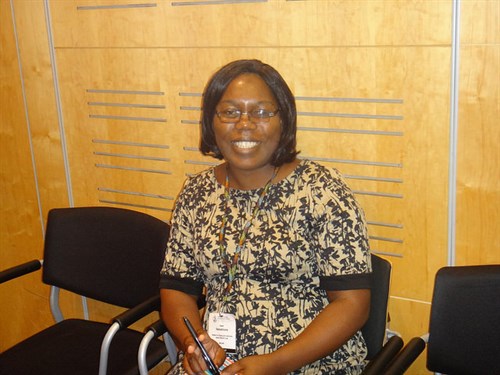
By Ireen Namakhoma
Earlier this month the Global Health Action produced a special issue on Gender and Health. One of the articles which I co-authored together with colleagues from Liverpool School of Tropical Medicine, Eleanor MacPherson, Sally Theobald and Esther Richards, highlights critical issues regarding sexual and reproductive health (SRH) in East and Southern Africa. We conducted a literature review on gender and health with the aim of identifying important issues for action.
The review found gender inequalities to be common across a range of health issues relating to SRH with women being particularly disadvantaged. Gender inequality is a critical structural constraint to development and improved health outcomes. Gendered social norms undermine women’s position in society leaving women with limited access to social and economic resources and impacting negatively on women and girls’ health and well-being. The ability of women to realise their sexual and reproductive rights is vital to achieving gender equity in health as well as the empowerment of women. SRH relates to the health and well-being of people in matters related to sexual relations, pregnancy, and birth. The ability of women to realize their sexual and reproductive rights is vital to achieving gender equity in health as well as the empowerment of women.
Eastern and Southern Africa has the highest burden of infectious diseases including HIV and AIDS. The high HIV prevalence could be a significant contributor to high mortality rates within this region.
This region also has high maternal mortality rates. Comparison of data from the 16 countries in the region between 1980 and 2008, actually showed worsening maternal mortality rates in Bostwana, DRC, Lesotho, Mozambique, Namibia, South Africa, Swaziland, Zambia and Zimbabwe. Almost half of all maternal deaths occur during labour, delivery, or the immediate postpartum period. There is also a high unmet need of contraceptives which can lead to higher likelihood of unsafe abortions. Gender based violence is common and takes multiple forms - physical, sexual, psychological and economic. The data on gender based violence is shocking, for example in a study in South Africa, 27.6% of the men interviewed admitted to raping a woman; while estimates by the United Nation’s Children Fund reveal that 13-49% of women having been physically assorted by an intimate male partner.
Gender equity analysis is important
Recently on Sunday March 8, we commemorated the Women’s International Day, which reinforced for me the importance of gender equity analysis. It is critical that the focus on gender analysis is not lost in health research in order to have better understanding of how gender impacts on health inequities and related health outcomes. The Research for Equity and Community Health Trust has been central to debates and research that is close to policy to put forward gender and equity perspectives. Studies have shown gender to be an important determinant in access to health services. Analysis of pathways to care seeking in Malawi shows that women take longer to report to health facilities than men. The delay period amongst TB patients showed that women took longer to be diagnosed with TB than men and had more repeated visits. An exploration of desire to give birth among people living with HIV showed that women often against their wishes, were under pressure from their partners and spouses to fulfil community expectations in having children. Access to family planning was hindered by as some men perceived that the use of modern contraceptives negatively affected marital sexual relations. Gender also has impact on men living with HIV as often perceptions of masculinity affect access and retention to HIV services resulting in poor treatment outcomes.
Opportunities for advancing gender equity in health
Many researchers, like the ones in RinGs, are exploring ways to make health systems more gender-responsive and more gender-equitable. An issue that is important to me is the role of close-to-community providers, as I am the principle investigator for the REACHOUT consortium in Malawi. Effective community health worker (CHW) programmes have shown to have potential to better meet the needs of women, tend to be easily accessible, and minimize costs of care seeking. In a study which investigated the impact of using CHWs to promote early diagnosis and referral for HIV, showed a 37% increase in new patients initiating antiretroviral therapy and 61% increase in uptake of HIV testing within a 12 month period. CHWs are strategically placed to understand the challenges women face in accessing care and how this relates to broader societal and infrastructural challenges including gender norms. However for CHWs to be effective, there is need for mechanisms that sufficiently support and motivate them such as a responsive referral systems, adequate training, supportive supervision, community engagement and good coordination among the different stakeholders working at community level and we hope to learn more about this as our REACHOUT work progresses.
Recent news
- Kenya and Sierra Leone: A wake up call in light of Ebola, 14 March 2015
- International Women’s Day 2015: Celebrating women’s role in the promotion of primary healthcare in Ethiopia, 8 March 2015
- Experiência como primeiro autor de um artigo – Lições aprendidas e desafios, 14 January 2015

This project is funded by the European Union.
